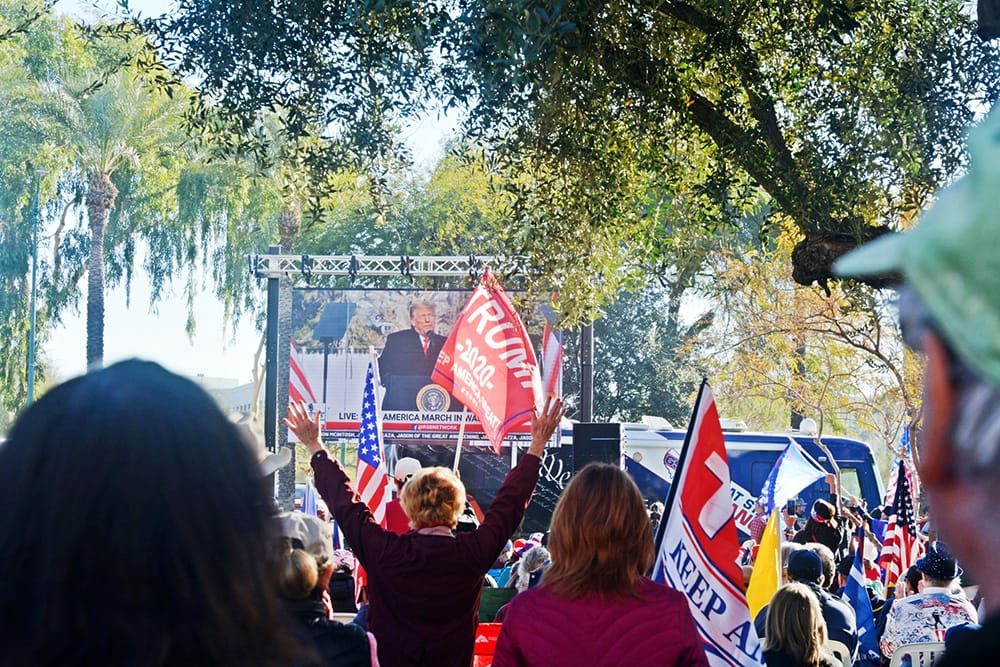Trump supporters gather on the Arizona Senate lawn and watch the president speak in Washington, D.C., on Jan. 6, 2021./ Photo by Jerod MacDonald-Evoy | Arizona Mirror
By Jeremy Duda | Arizona Mirror
Documents obtained by the U.S. House Oversight Committee showed that former President Donald Trump wanted his Justice Department to ask the U.S. Supreme Court to order a half dozen states, including Arizona, to hold new presidential elections and to bar them from casting their electoral votes for President-elect Joe Biden.
On Dec. 29, Trump assistant Molly Michael emailed several Justice Department figures, including incoming acting Attorney General Jeffrey Rosen, a copy of a complaint the president wanted filed with the U.S. Supreme Court. The complaint asked the court to nullify the electoral votes of Arizona, Georgia, Michigan, Nevada, Pennsylvania and Wisconsin and to order all six states to hold special elections to appoint presidential electors.
Trump also wanted the court to order the states to conduct audits of their election results that would be supervised by court-appointed special masters.
The proposed complaint, which was never filed by the Department of Justice, featured a number of complaints about the conduct of the election in each of the six disputed states. It was made public Tuesday as part of a cache of documents released by the House Oversight Committee and Government Reform Committee.
At the heart of the complaint are allegations that “non-legislative officials” in Arizona and the other five states used the COVID pandemic “as an excuse to unconstitutionally revise or violate their states’ election laws.” The complaint argued that the changes violated Article I, Section 2 of the United States Constitution, which grants legislatures the power to select the manner of choosing presidential electors, and the Equal Protection Clause of the Fourteenth Amendment by using different standards for the treatment of ballots within the same state.
In Arizona, Trump’s complaint focused on a federal judge’s ruling that briefly extended the voter registration deadline for people who wanted to cast ballots in the general election, which was later reversed by the 9th Circuit Court of Appeals.








